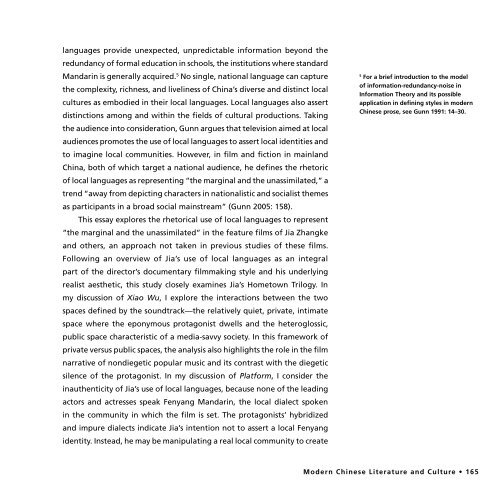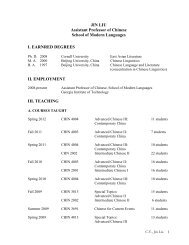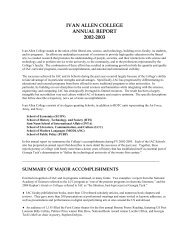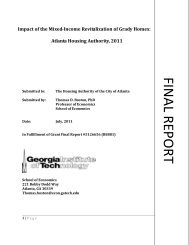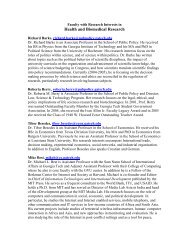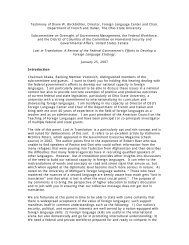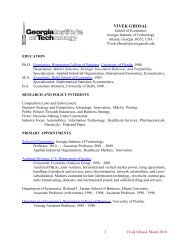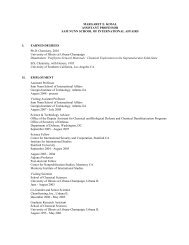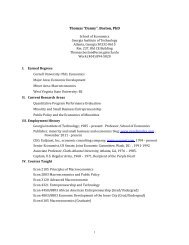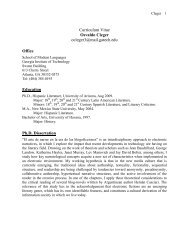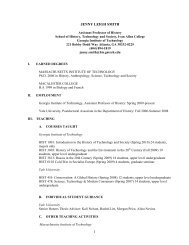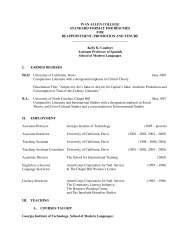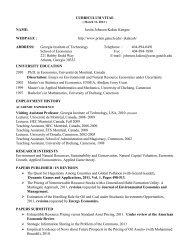Read this paper
Read this paper
Read this paper
Create successful ePaper yourself
Turn your PDF publications into a flip-book with our unique Google optimized e-Paper software.
languages provide unexpected, unpredictable information beyond the<br />
redundancy of formal education in schools, the institutions where standard<br />
Mandarin is generally acquired. 5 No single, national language can capture<br />
the complexity, richness, and liveliness of China’s diverse and distinct local<br />
cultures as embodied in their local languages. Local languages also assert<br />
distinctions among and within the fields of cultural productions. Taking<br />
the audience into consideration, Gunn argues that television aimed at local<br />
audiences promotes the use of local languages to assert local identities and<br />
to imagine local communities. However, in film and fiction in mainland<br />
China, both of which target a national audience, he defines the rhetoric<br />
of local languages as representing “the marginal and the unassimilated,” a<br />
trend “away from depicting characters in nationalistic and socialist themes<br />
as participants in a broad social mainstream” (Gunn 2005: 158).<br />
This essay explores the rhetorical use of local languages to represent<br />
“the marginal and the unassimilated” in the feature films of Jia Zhangke<br />
and others, an approach not taken in previous studies of these films.<br />
Following an overview of Jia’s use of local languages as an integral<br />
part of the director’s documentary filmmaking style and his underlying<br />
realist aesthetic, <strong>this</strong> study closely examines Jia’s Hometown Trilogy. In<br />
my discussion of Xiao Wu, I explore the interactions between the two<br />
spaces defined by the soundtrack—the relatively quiet, private, intimate<br />
space where the eponymous protagonist dwells and the heteroglossic,<br />
public space characteristic of a media-savvy society. In <strong>this</strong> framework of<br />
private versus public spaces, the analysis also highlights the role in the film<br />
narrative of nondiegetic popular music and its contrast with the diegetic<br />
silence of the protagonist. In my discussion of Platform, I consider the<br />
inauthenticity of Jia’s use of local languages, because none of the leading<br />
actors and actresses speak Fenyang Mandarin, the local dialect spoken<br />
in the community in which the film is set. The protagonists’ hybridized<br />
and impure dialects indicate Jia’s intention not to assert a local Fenyang<br />
identity. Instead, he may be manipulating a real local community to create<br />
5<br />
For a brief introduction to the model<br />
of information-redundancy-noise in<br />
Information Theory and its possible<br />
application in defining styles in modern<br />
Chinese prose, see Gunn 1991: 14–30.<br />
Modern Chinese Literature and Culture • 165<br />
MCLC 18.2.indd 165<br />
12/20/06 2:01:34 PM


